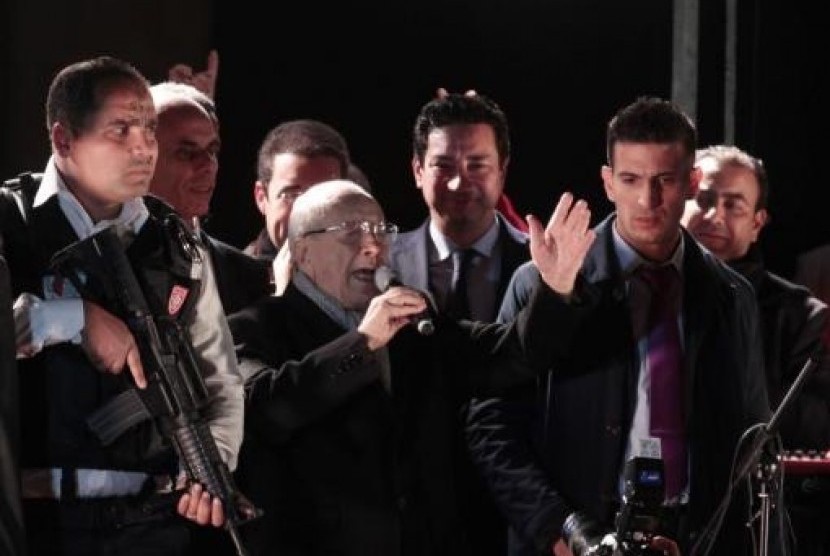REPUBLIKA.CO.ID, TUNIS -- Veteran politician Beji Caid Essebsi declared victory in Sunday's presidential run-off vote, seen as the last step in Tunisia's shift to full democracy four years after an uprising ousted autocrat Zine El-Abidine Ben Ali.
Official results are not due until Monday and his rival, the incumbent president, Moncef Marzouki, refused to concede defeat. But soon after polls closed, Essebsi, an 88-year-old former parliament speaker under Ben Ali, announced that he had won by a clear margin and jubilant supporters took to the streets of the capital in celebration, chanting "Beji President!"
Victory for Essebsi would enable him to consolidate power, with his new secular party, Nidaa Tounes (Call for Tunisia) already controlling parliament after defeating the main Islamist party in legislative elections in October. With a new progressive constitution and a string of votes successfully completed, Tunisia is hailed as an example of democratic change in a region that is struggling to cope with the aftermath of the 2011 Arab Spring revolts.
"I dedicate my victory to the martyrs of Tunisia. I thank Marzouki, and now we should work together without excluding anyone," Essebsi told local television.
However his rival Marzouki, a 69-year-old former rights activist, rejected the victory claim and suggested that he would emerge the winner when the official results were released.
"Tunisia has won today, democracy has won, we need to stay united. Despite the claims of our adversary, all indications are positive for us, we look ahead," he told cheering supporters from the balcony of his Tunis campaign headquarters.
Police fired tear gas to disperse a few hundred protesters in a southern city who took to the streets to denounce Essebsi's victory speech, the state news agency TAP reported. Although Tunisia has largely avoided the bitter post-revolt divisions that trouble Egypt and neighboring Libya, tensions nevertheless flared between Islamists and secularists after the 2011 rebellion in one of the Arab world's most secular nations.
Essebsi took 39 percent of votes in the first round ballot in November with Marzouki winning 33 percent.



